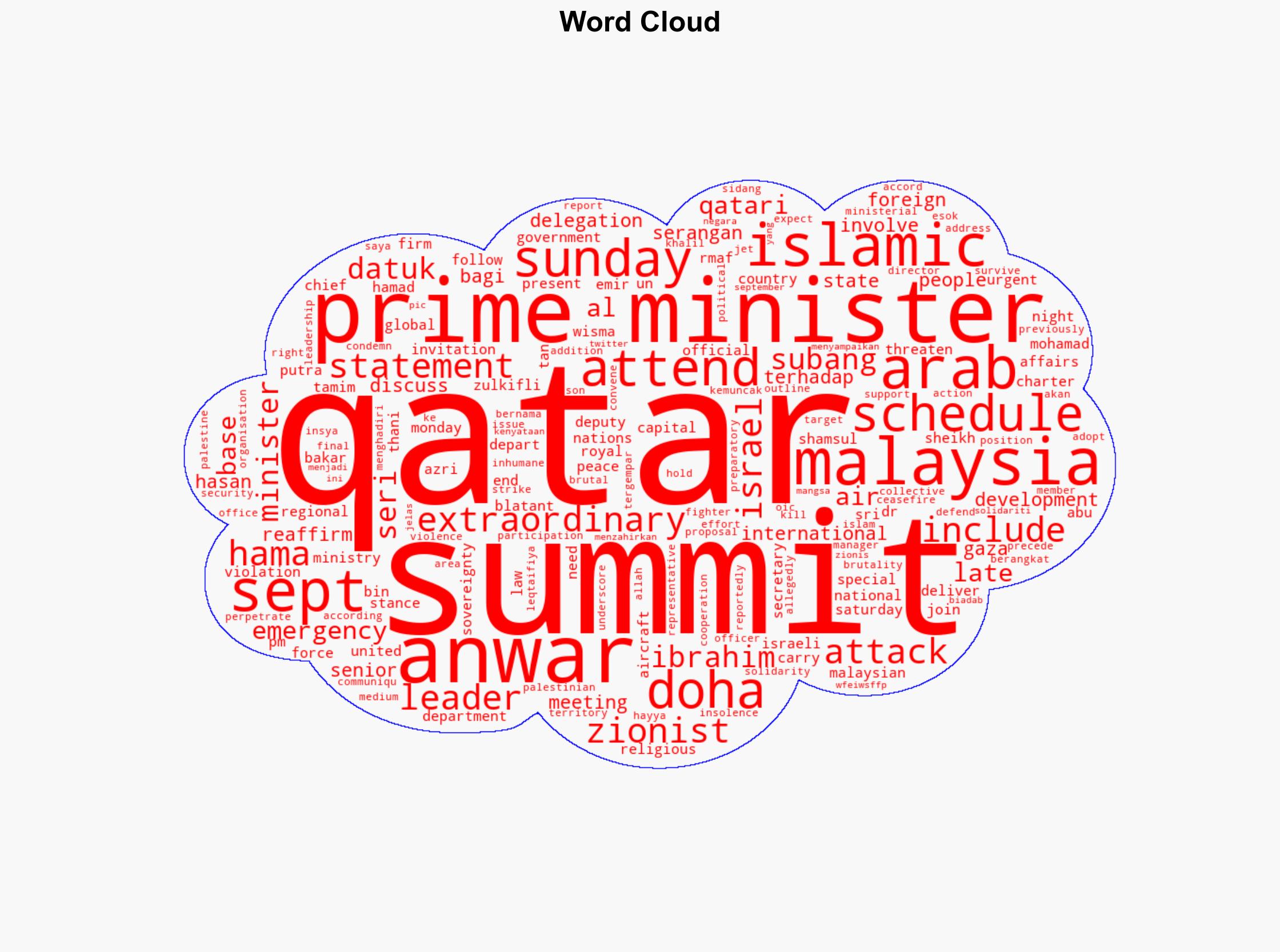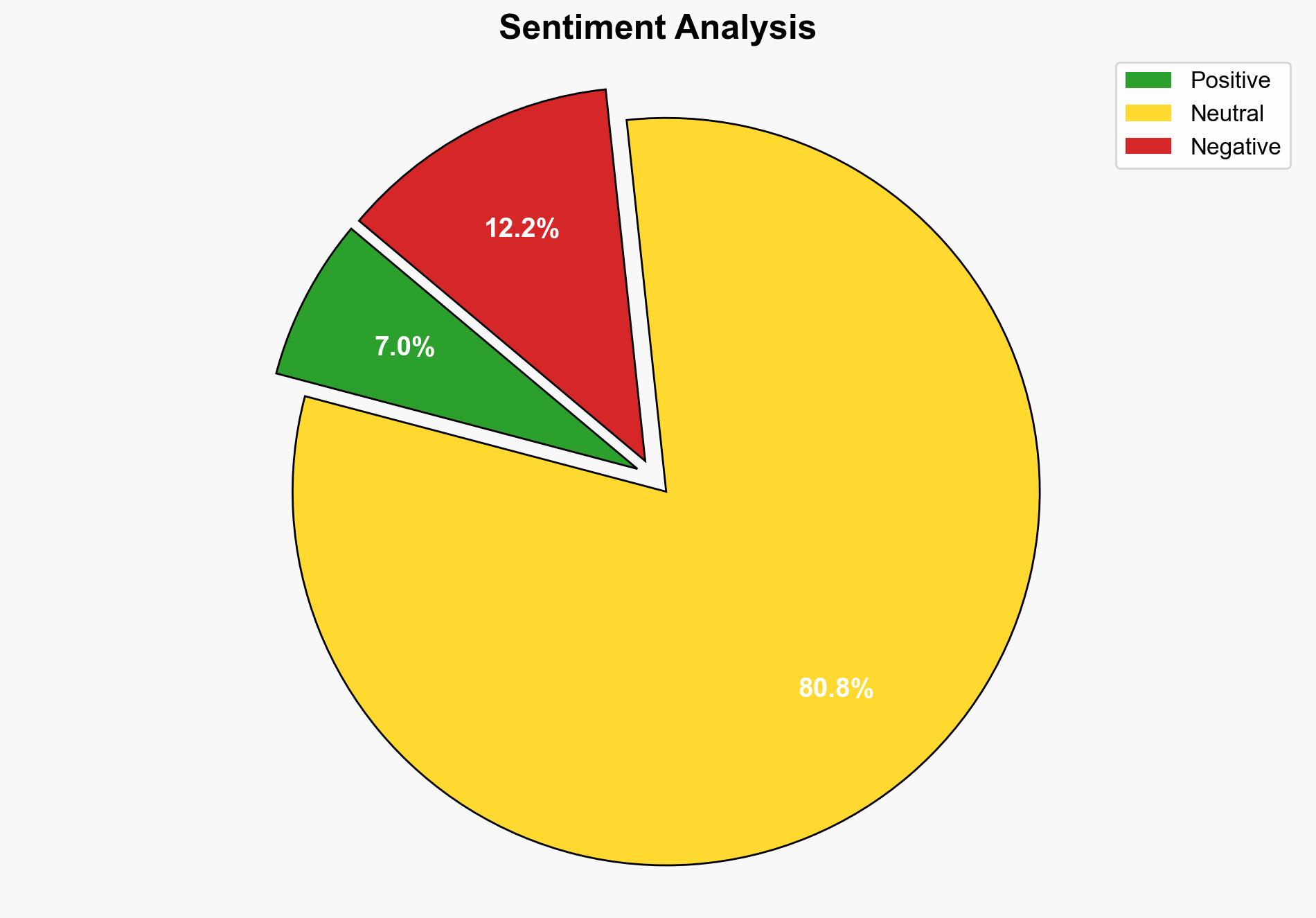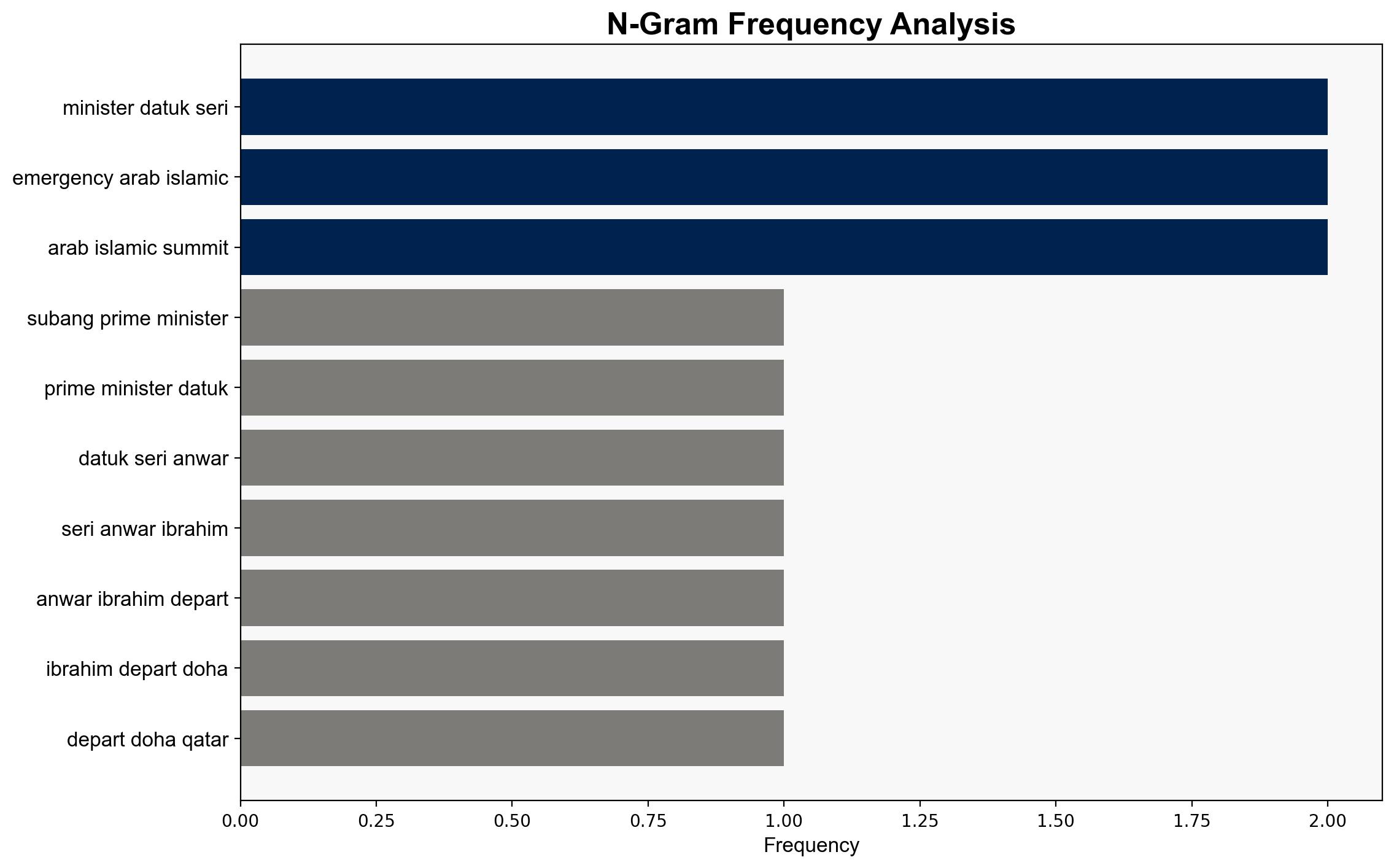Anwar leaves for Doha to attend emergency Arab-Islamic summit – The Star Online
Published on: 2025-09-14
Intelligence Report: Anwar leaves for Doha to attend emergency Arab-Islamic summit – The Star Online
1. BLUF (Bottom Line Up Front)
The most supported hypothesis is that Anwar Ibrahim’s attendance at the emergency summit in Doha is primarily aimed at reinforcing Malaysia’s diplomatic stance against Israeli actions and supporting regional solidarity. Confidence level: Moderate. Recommended action: Monitor the outcomes of the summit for shifts in regional alliances and potential escalations in the Israeli-Palestinian conflict.
2. Competing Hypotheses
1. **Diplomatic Solidarity Hypothesis**: Anwar Ibrahim’s participation is primarily to express Malaysia’s solidarity with Qatar and other Arab-Islamic nations against Israeli actions, aiming to strengthen diplomatic ties and regional unity.
2. **Domestic Political Maneuvering Hypothesis**: Anwar’s attendance is motivated by domestic political considerations, using the international platform to bolster his political standing at home by taking a strong stance on a high-profile international issue.
Structured Analytic Technique: Using Analysis of Competing Hypotheses (ACH), the Diplomatic Solidarity Hypothesis is better supported due to the explicit mention of Malaysia’s firm stance on international law violations and the emphasis on regional peace in the source text.
3. Key Assumptions and Red Flags
– **Assumptions**: It is assumed that Malaysia’s participation will have a significant impact on the summit’s outcomes. Another assumption is that the summit will lead to concrete actions against Israeli policies.
– **Red Flags**: The lack of specific details on Malaysia’s proposed actions or commitments at the summit. Possible over-reliance on diplomatic rhetoric without actionable outcomes.
– **Blind Spots**: Potential internal dissent within Malaysia regarding the government’s stance on the issue is not addressed.
4. Implications and Strategic Risks
– **Geopolitical Risks**: Heightened tensions in the Middle East could lead to broader regional instability, impacting global energy markets and international relations.
– **Cascading Threats**: Increased solidarity among Arab-Islamic nations might provoke retaliatory measures from Israel, escalating the conflict.
– **Economic Implications**: Potential disruptions in trade relations with countries involved in the conflict.
5. Recommendations and Outlook
- Maintain diplomatic channels with all parties to facilitate dialogue and de-escalation.
- Prepare for potential economic impacts by diversifying trade partnerships.
- Scenario Projections:
- Best Case: The summit leads to a unified diplomatic effort that pressures Israel into negotiations.
- Worst Case: The summit exacerbates tensions, leading to military escalations.
- Most Likely: The summit results in a reaffirmation of existing positions without significant change in the conflict dynamics.
6. Key Individuals and Entities
– Anwar Ibrahim
– Sheikh Tamim bin Hamad Al Thani
– Khalil al-Hayya
– Dr. Zulkifli Hasan
– Tan Sri Shamsul Azri Abu Bakar
7. Thematic Tags
national security threats, geopolitical strategy, regional diplomacy, Middle East conflict





